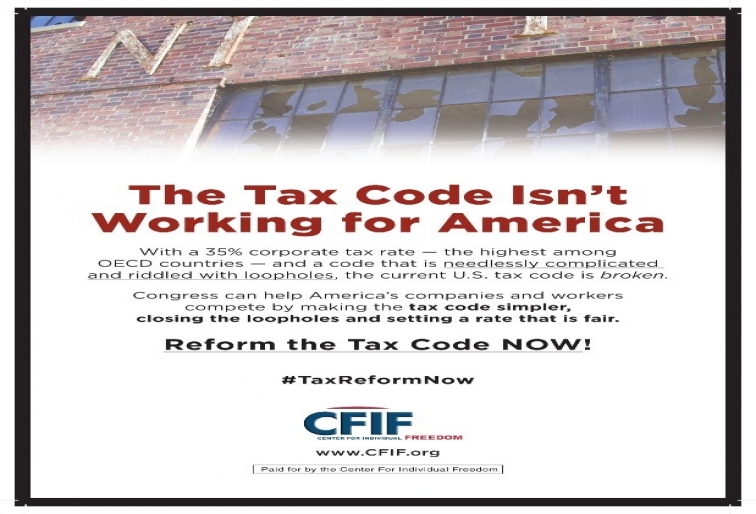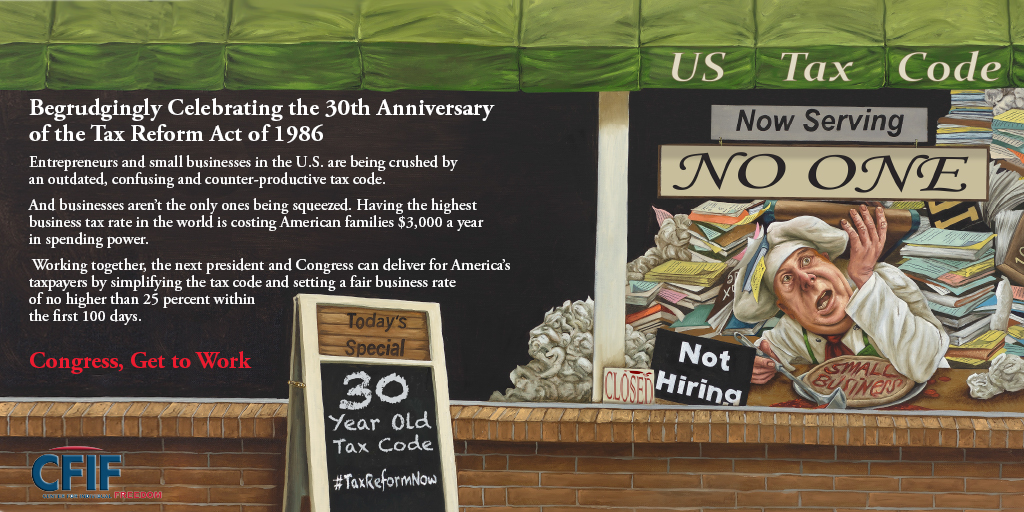Tonight, millions of Americans will tune into the final Presidential debate between Donald Trump and Hillary Clinton. Among the central topics should be the economy, which recent polling shows remains voters’ foremost concern.
Unfortunately, voters haven’t heard enough from either candidate on that topic during the first two debates.
Which is tragic, because this election itself has taken a toll on the economy. According to a recent poll of economists, rhetoric from both campaigns has had a negative impact on economic growth over the past few months. Accordingly, rather than continuing to argue about personal issues and mutual animosities, both candidates must do a better job of improving economic optimism and confidence by advocating pro-growth policies that will help us proper.
And in that vein, perhaps no issue merits focus more than comprehensive tax reform.
During the first debate, taxes and potential plans received brief discussion. Both candidates agreed that a significant problem exists with companies moving to other countries and protecting their earnings abroad from excessive U.S. taxes. Trump correctly pointed out that the reason many companies leave is that our corporate rate remains the highest in the developed world. Indeed, a recent Mercatus Center study highlighted how the increasing number of corporate inversions result from that inglorious distinction, and how lowering the rate will go a long way toward keeping American companies here so that they can create jobs and generate tax revenues domestically rather than abroad.
But more discussion and detail is critical. Over thirty years ago, on September 26, 1986, the Senate began debate over comprehensive tax reform legislation that the House of Representatives had approved. Incredibly, our tax code has not been reformed in a meaningful manner during the ensuing 30 years despite tectonic evolution of the U.S. economy during that time period. It’s therefore past time to modernize the code and reformed so as to help American businesses of all sizes, rather than continuing to hinder growth and opportunity.
And on that point, we need concrete plans from Mr. Trump and Secretary Clinton.
Demonstrating his own commendable leadership on this critical matter, Speaker of the House Paul Ryan recently stated that tax reform is his top priority in 2017. He rightly explained that the first thing that needs to be accomplished next year is “a budget that gets tax reform, that gets this debt and deficit under control.” Clearly, Speaker Ryan realizes that the American people welcome discussion about how the federal government can actually enact policies beneficial to the economy and their own individual finances. Whoever enters the White House this coming January must work with Congress to reform our tax code as soon as possible, which is precisely why we need to hear their ideas on how to best accomplish that.
To his credit, Trump has proposed a tax reduction for all businesses from 35 percent to 15 percent. And to her credit, Clinton acknowledges that lowering the corporate rate would encourage companies to repatriate funds stranded overseas. That’s obviously a step in the right direction, but the American people need to hear more specifics – a simplified code and lower rate, in particular – and a timeline for when they plan to enact that type of reform. While their rhetoric on the issue is occasionally encouraging, voters must learn which candidate will work to fix the tax code in order to improve our economy the fastest.
This election has obviously been among the most contentious in our nation’s history, and policy has too often taken a back seat to personality. While that may at times provide shallow entertainment, it’s time to put the personal attacks aside and hear more about both candidates’ visions for the economy. Hopefully, that will mean devoting more time toward discussing tax reform and economic growth, not bickering over issues that ultimately has little impact on Americans’ everyday lives and needs.




 There’s perhaps no greater defining mark of American politics today than the polarization that plagues our discourse. Acrimony has become the default posture of the major political parties and their supporters on even the most mundane issues.
There’s perhaps no greater defining mark of American politics today than the polarization that plagues our discourse. Acrimony has become the default posture of the major political parties and their supporters on even the most mundane issues.


 CFIF Freedom Line Blog RSS Feed
CFIF Freedom Line Blog RSS Feed CFIF on Twitter
CFIF on Twitter CFIF on YouTube
CFIF on YouTube